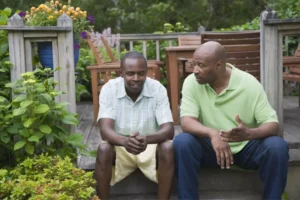For my 13th birthday, my mom made me a cake that looked like a round juicy section of watermelon. She even used real seeds pressed into the pink icing, framed in a thin band of white with green frosted sides. It was the dessert of a Springtime Queen.
My ladies in waiting stood by with gifts, well wishes and giggles. I’m sure I have pictures of the blessed event, tucked away in a box somewhere that’s labeled “to scrapbook.” It’s a rite of passage that should be witnessed and documented, revisited and rejoiced in over the years.
Birthdays are one of the many ways we celebrate the sacredness of children. Jesus calls us to mirror their innocent faith, to shrink down into their skin and come to Him, learning from their trust. The gate to the Kingdom of God bears a measuring stick “you must be this small to enter.” He tells us that the one who deliberately separates a child from Him will suffer as though plunged into the depths of the sea. To injure a child is a serious injury against the Maker of that child. Quite frankly, you’d be better off backing over the Mona Lisa with your semi-truck.
I wonder then, what will become of the man who came to that market-side cafe, in the smothering heat of South East Asia and purchased the innocence of a child along with his pancakes. The memory still minces my heart, even though a year’s time now stands between me and that moment. I saw the Cambodian girl tucked against the wall, her shoulders curled over herself, her small frame swallowed in the shadow of the foreigner sitting beside her. I watched while the bearded giant negotiated with a Cambodian man across the table over the terms of her “service.”
As I sat three tables away, an involuntary witness to his crime, questions formed a full-speed collision in my head. How old was she? Could I talk to her? Could I stop this “transaction?” How could this Cambodian man bring her here and betray her into the hands of such a person? I only had time to snap a picture with shaky hands before they were gone, the Cambodian man one way, the American and his new entertainment, clutching only one small bag of possessions, gone the other. “Be careful friend,” I shouted after her, my attempt at Khmer causing her to throw a look my way. A look that said, “I know this is wrong, but I have no choice….”
There would be no breakfast eaten that day. I felt as cold and rubbery as the pile of eggs staring back from my plate. Later I would talk with the cafe’s Cambodian owner and explain who could be contacted in such an event. She told me with lost resignation that this happens all the time.
Lord, have mercy, Lord have mercy. This cry became a daily SOS to heaven during the 12 months my heart was parceled out into the lives of young Cambodian girls. I lived and worked for a year in their country of temples, palm trees and red fluorescent lights that screamed the message each night, “Lives destroyed here.”
Cambodia’s capital, Phnom Penh, is home to over 300 brothels. The girls inside, as young as age 4, are from Vietnam, Thailand and Cambodia. They have been tricked, purchased, often drugged, transported across national borders and are now held emotionally and physically captive to the demands of those who would profit monetarily from their destruction. People from in town and from every “civilized” country know this forgotten land to be one of cheap and abundant perversion with “no consequences.” Though deepest in Cambodia and the surrounding nations, this disease is worldwide, with over one million children currently in the snare of sex trafficking and exploitation. “If then the light within you is darkness, how great is that darkness” (Matt. 6:23).
For some of these children, Christ’s Mona Lisas, rescue has become a possibility. It’s a difficult process, accomplished through the work of organizations like International Justice Mission. These groups go undercover into brothels, collect evidence, take it to the local police and force an investigation. If the police cooperate, a brothel will be raided and girls brought out. Police and rescuers will also intervene when a girl is transported to or from the home of a foreign pedophile. International Justice Mission will then begin a legal prosecution, but sometimes this can take years and requires the cooperation of the perpetrator’s home country as well as the local courts.
In the meantime, there is a consequence. I’ve met her. I’ve held her and listened to the sound of silence where her heart should beat. I’ve searched the caverns of her vacant eyes for a spark of gold. The “cafe transaction” has replaced her purity with wounds to body and soul. Her sacredness has been shattered in a way only the Master of the Universe can restore.
I worked for a year beside a beautiful Cambodian and Vietnamese staff at a center where Jesus’ hands reach down to begin this process of restoration. It’s an initial placement where girls will come immediately after rescue and stay for two to three months. During that time work is done to answer the difficult question of “what happens next” in each young life. My cry for mercy was often sent up, as well as answered, within its walls. “You hear, O Lord, the desire of the afflicted; you encourage them, and you listen to their cry, defending the fatherless and the oppressed, in order that man, who is of the earth, may terrify no more” (Psalm 10:17). Will you too listen to their cries?
Every day, as I sit in my comfortable new home I’m trapped by the continuing reality of this modern-day slavery. I can’t escape it. But as Wilberforce taught me, by the grace of God human-trafficking can end, and not a life too soon. I can fight for legislation, pray for those working in this field, and intercede for more frequent and successful rescues. I can work to shut down the pornography industry; these are the girls downloaded onto computer screens each day. I can support prevention programs and restoration centers. I can talk about the reality of this tragedy, even when it takes away my comfort, complacency and desire for breakfast.
I must have hope. In the dust and mud and pain of Cambodia, the assessment center and those fighting trafficking are recapturing the sanctity of life. They’ve created a place for these broken ones to find dignity and humanness, to breathe again, a place to cry, and to spend the night hours … sleeping. There is the freedom to feel, to eat three meals, to receive counseling. It’s a place to play, and forget life for a moment, in hopes to remember what it means to be a child. It’s a place with birthday parties.
Copyright 2008 Focus on the Family. All rights reserved.









